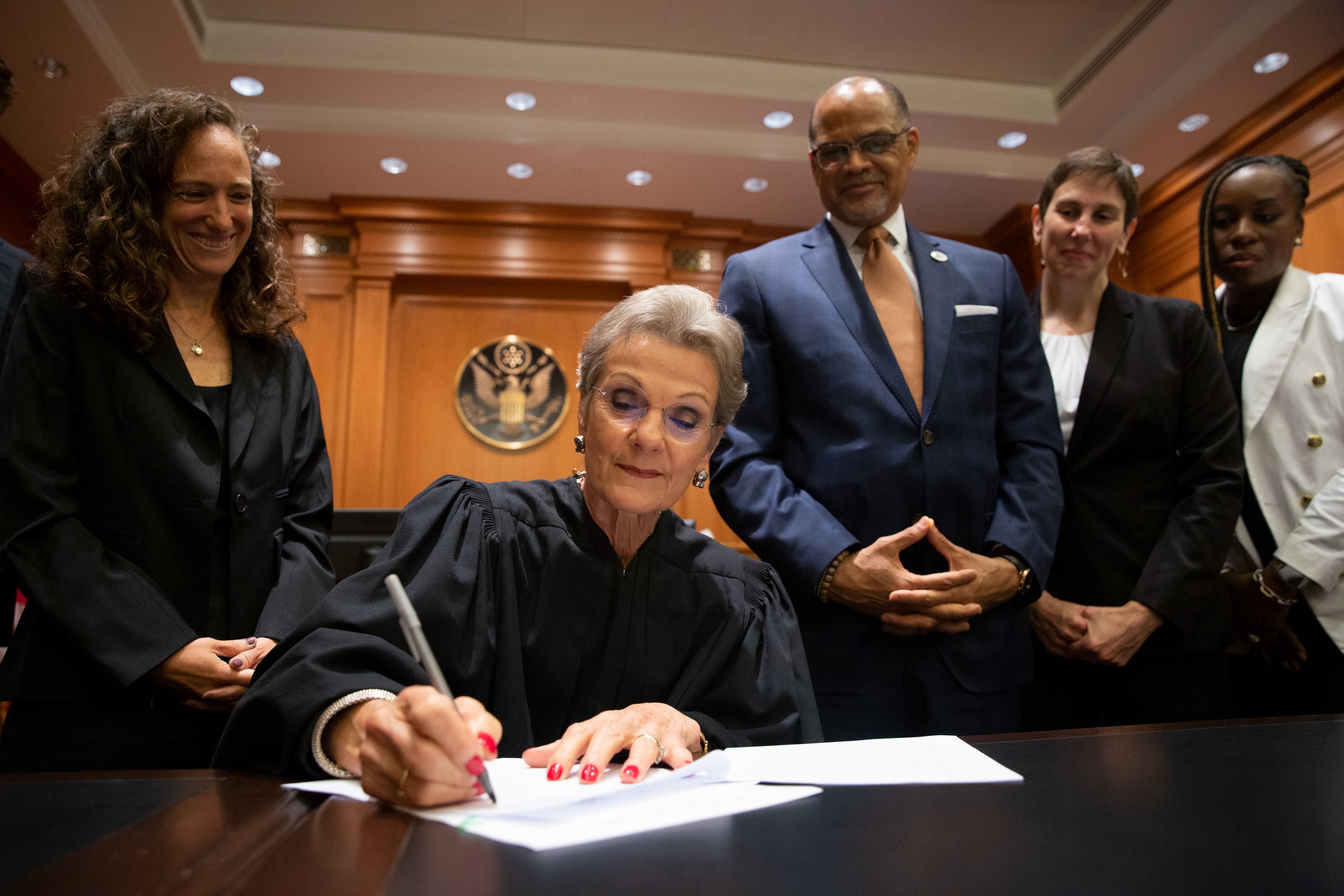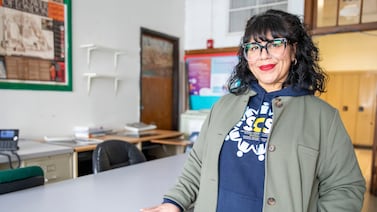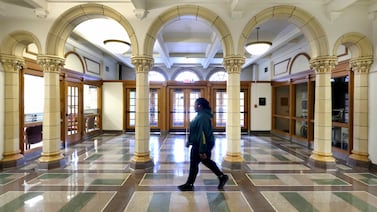Sign up for Chalkbeat New York’s free daily newsletter to get essential news about NYC’s public schools delivered to your inbox.
After a federal judge in 2023 ordered city officials to make dozens of reforms to more swiftly provide special education services to families who won legal disputes, top Education Department officials embraced the extra oversight.
Yet almost as soon as the order was handed down, the city began to miss deadlines. Now, two years later, the Education Department has failed to comply with most of the order’s requirements.
At the time of the ruling, former schools Chancellor David Banks displayed an unusual level of support for a court action targeting his own agency.
“We, too, believe that change is long overdue,” he said. “We are moving aggressively to set a new course.”
But out of the 51 steps outlined in the court order issued by Manhattan federal Judge Loretta Preska, the city has implemented just 21 of them, according to a July report from a court appointed monitor. Some of the requirements are more than a year overdue.
As a result, special education experts warn that thousands of families are likely to continue facing lengthy delays for special education services and payments. There is little evidence that the court order has prompted the city to significantly speed up the process in the vast majority of cases, said Rebecca Shore, the litigation director at Advocates for Children, which brought the lawsuit that prompted the court order. Independent audits have yet to show significant progress.
Shore hoped that the court-ordered reforms “would actually help students get the ordered services that they require more quickly,” she said. “That’s still not happening.”
The court order was designed to resolve longstanding problems with the city’s special education system. Families often wait months or even years for the Education Department to implement services or make payments after they win them from an administrative judge. (The number of special education cases heard by administrative judges has exploded in recent years, with nearly 20,000 alone last school year.)
The delays mean children may go without the transportation, physical therapy, counseling, and tutoring services they’re entitled to — or their parents may be forced to pay out of their own pocket. In other cases, families may not receive tuition payments for private schools they are owed after successfully arguing their children could not be properly served in the city’s public schools.
Implementing orders from administrative judges on time has been the subject of litigation for more than two decades. Under a 2007 settlement, the Education Department was required to implement orders for services or payments within 35 days — unless the judge, also known as an impartial hearing officer, approves a longer timeline.
The city’s track record of complying with those time frames has long been abysmal, according to independent audits. Orders for services like speech therapy or counseling were implemented on time in just 9.5% out of nearly 3,400 cases, according to the most recent data from October 2023 to January 2024. Just 1% of the nearly 5,300 payment orders were fulfilled on time over the same time frame, which includes the initial period after the 2023 court order took effect. (The Education Department has paid about $39 million for regular audits over the last 14 years.)
The audits are reported on a significant lag, and Education Department officials said they are working with the court monitor to make more recent data available. Nicole Brownstein, an agency spokesperson, said the city has made some progress implementing the order.
“We have completed most of the obligations related to process improvements, staffing increases, and technology upgrades, and we are currently working on rolling out the new technology system,” she wrote in an email. Officials have spent $63 million so far to comply with the court order, she added. That figure includes $10.6 million for audits over the past two years and $1.9 million in fees for the court monitor, whose work began four years ago.
Major elements of the order remain unmet
A root cause of the delays in special education services and payments was that the office overseeing the process relied on outdated methods and technology, according to a report from the court appointed monitor, also known as a special master.
David Irwin of Thru Consulting LLC, who was appointed as the special master, found that the office relied on handwritten forms and laborious data-entry practices that involve “simply copying text from one place to another.”
As part of the court order, the city agreed to modernize its systems, hire more staff to process special education orders, and set up a hotline families could call for updates on the status of their cases among other changes.
Irwin told Chalkbeat the Education Department is making some progress, including adding more than 50 staffers to help process cases. But many more tasks remain in limbo. The hotline for families is not yet up and running, meaning parents typically have to send emails into what often feels like “a black hole,” Irwin said.
And one of the biggest technological overhauls that would help streamline the process of implementing special education orders is not set to launch until December, a timeline that Irwin’s report suggests may not be feasible.
“My team remains concerned about the tight timelines and little buffer time to absorb issues that may come up,” Irwin wrote, adding that he was encouraged by the Education Department’s commitment to the project.
The deadlines outlined in the court order were “aspirational” in many cases, Irwin acknowledged in an interview, though he added that “I’m not making any excuses for them.”
Some observers expressed deep frustration that the process has not yet yielded clear results after two years.
Additional court oversight has “failed to make any significant inroad into the NYC public schools’ pervasive failure to deliver the services and programs that administrative law judges order them to provide,” John Farago, a hearing officer who previously adjudicated special education cases in New York City, wrote in an email.
In the meantime, many students are missing out on essential special education services.
“Each day of delay,” Farago said, “is a day of lost and irreplaceable educational opportunity that cannot ever be recaptured.”
Editor’s note: This story has been updated to clarify the timeframe of the special master’s services.
Alex Zimmerman is a reporter for Chalkbeat New York, covering NYC public schools. Contact Alex atazimmerman@chalkbeat.org.






